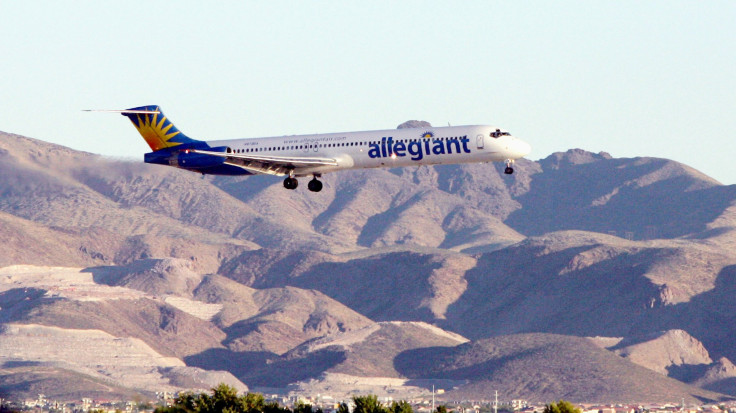Allegiant Air Flight Without AC Causes Passengers To Faint

An air conditioning malfunction on an Allegiant Air plane on June 22 caused several passengers to faint. The Indiana bound plane was forced to return to St. Pete-Clearwater International Airport in Florida after the passengers complained about the uncomfortable temperature inside the cabin, the Tampa Bay Times reported.
The reports about the incident surfaced Friday more than two weeks after the incident took place. Two people received treatment after they showed signs of overheating.
Read: United Airlines Puts ScHoolboy Q's Dog In Wrong Flight, Rapper Asks For Reason
“I don’t sweat and I was dripping,” one of the passengers, named Karen Willey, told the local newspaper.
Michele Routh, Public Relations Director, St. Pete-Clearwater International Airport, told New York Daily News a total of four passengers were examined with heat-related issues. While reports claimed some passengers passed out on the flight, Allegiant spokeswoman Hilarie Grey said no one actually fainted. She said the pilot called first responders after he learned one of the flight attendants started to feel faint.
Grey added that the malfunctioning of a cooling valve was believed to be the cause of the incident.
After arriving at the gate, passengers were given medical assistance as many complained of the heat inside the cabin.
There is no rule by the Federal Aviation Administration over the temperature inside a cabin, and it can be adjusted as per the customers’ preference.
Read: Emirates Airline Caught Pouring Unused Champagne Back Into Bottle
“Bottom line, the airlines and regulators do not consider temperature to be a safety issue. Therefore, it’s low on the list of priorities when it comes to on-time departure,” union spokeswoman Taylor Garland, said in an interview on the airlines' lack of temperature regulations.
According to the Daily News, the FAA did not comment on the latest incident, but said it expected the airlines to “take appropriate action if a cabin temperature condition occurs on the ground that could potentially affect passenger safety.”
There has been a debate over a regulation to maintain a maximum cabin temperature, and the Association of Flight Attendants — a group of at least 50,000 members — has long been petitioning Congress to set it to a maximum of 80 degrees.
Correction: 7/17, 6:30 pm: This story has been corrected to delete an anecdote about a passenger whose complaints related to a flight on United, not Allegiant.
© Copyright IBTimes 2025. All rights reserved.




















